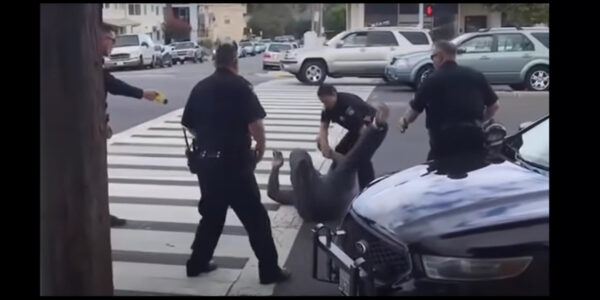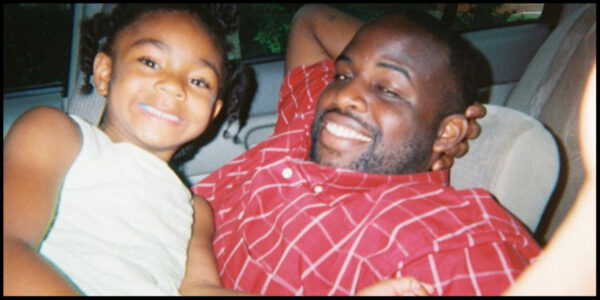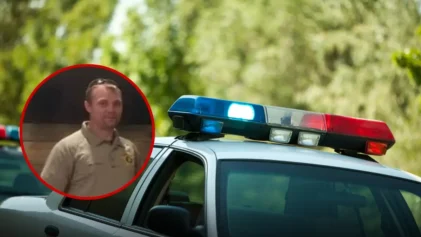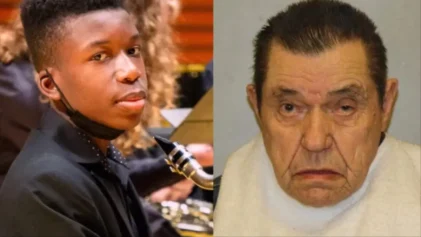The family of a Morehouse graduate who was stopped by sheriff’s deputies for jaywalking and died after being hit with a Taser seven times has settled a wrongful death lawsuit for $4.5 million.
“They should learn that the Taser is not a toy,” Adante Pointer said.
Pointer is the attorney who represented the family of Chinedu Okobi in their lawsuit against San Mateo County, which is 20 miles south of San Francisco. The lawsuit accused San Mateo County deputies of racial profiling and using excessive force against Okobi, 36, the day he died.

“The police did not have reasonable suspicion or probable cause to believe he committed a crime,” Okobi family attorney John Burris said to The Daily Journal.
On Oct. 3, 2018, at 1 p.m., Okobi encountered deputy Joshua Wang who was on patrol. As Wang was driving, he saw Okobi briskly walking across the street, but he was not in a designated crosswalk. Wang drove toward Okobi and said, “Hey, hold up a minute. Hold up a minute. Hey, stop.”
Okobi did not respond to Wang, according to court documents, and crossed the street. Wang at that point radioed for “all available police” to come as quickly as possible.
Wang confronted Okobi again about two minutes later while Okobi was walking in the median. Wang can be heard telling Okobi, “Let’s go over here and talk on the sidewalk.” After Okobi did not respond to the deputy again, Wang waited in his squad car until other deputies arrived.
Dashcam and body-camera video shows Okobi, who stood about six feet tall and weighed 333 pounds, walking down the sidewalk alongside the busy street he crossed minutes earlier. About five minutes after Okobi’s first encounter with Wang, another deputy approached Okobi on foot and attempted to grab his arm to apprehend him. By this time, Okobi is seen holding both of his hands in the air asking, “What I do?!”
As Okobi asked deputies what was going on, he continued walking forward just as other arriving deputies surrounded him to make an arrest.
Dashcam video shows a swarm of deputies circling Okobi as they yelled, “Stop resisting! You’re going to get tased, get on the ground now.”
Okobi and the deputies engaged in a momentary tussle where one of the deputies is seen holding onto his shirt. As Okobi ran around in a circular motion, the deputies deployed their Tasers, which struck Okobi, sending him to the ground.
As Okobi is on the ground in the middle of the street with traffic passing by, the five deputies continue to deploy their Tasers on Okobi. The downed 36-year-old asks, “What I do?! Get him off me! I’m lost. Spread the word of God!”
The officers continue to try to apprehend Okobi, who manages to get back on his feet and run a few feet away as more deputies arrive to apprehend him.
Several officers are seen in bystander video piled on top of Okobi as he is handcuffed. Deputies can be heard struggling to control Okobi as he faintly says, “I can’t breathe.”
After Okobi is handcuffed, the deputies call for paramedics.
Deputies can be heard repeatedly saying, “Is he breathing? Watch his breathing. Roll him on his side.”
At 1:13 p.m., paramedics arrived on the scene. Okobi died on the way to the hospital after suffering from cardiac arrest following physical exertion, physical restraint and recent electro-muscular disruption, according to the autopsy report.
Pointer said law enforcement must understand the Taser can be deadly.
“It is, in fact, a potentially deadly weapon when used inappropriately or incorrectly. They have to be just as careful in using a Taser as they are in using their firearm or gun,” Pointer said.
Video of the incident was released to the public a month after it happened and Okobi’s family expressed anger the video contradicted initial accounts from deputies.
San Mateo County deputies claimed Okobi punched a deputy before he was hit with a Taser, The Daily Journal reported. In the dashcam video, Okobi does not appear to strike the deputies before he was hit with the Taser prongs.
“My brother never attacked any of the deputies. He did not assault anyone. My baby brother, as big as he was, didn’t even defend himself,” Ebele said on her social media post.
On May 31, 2019, Okobi’s family filed a pair of lawsuits against San Mateo County over the in-custody death.
“My brother was electrocuted,” Okobi’s sister Ebele said on a Facebook post.
“This was a shocking example of racial profiling and the devastation that can occur when a minor stop, an illegal stop, results in someone’s death,” Burris said to The Daily Journal.
The New York Times reports the county and Okobi’s family reached a settlement in August 2022 for $4.5 million, reportedly a high figure for this particular county. The settlement was first reported publicly by the San Francisco Standard.
“It is certainly the largest law enforcement-related settlement in anyone’s memory,” San Mateo County spokeswoman Michelle Durand told The New York Times. Durand said the amount would be covered by the county’s insurance.
Although the family obtained some semblance of justice in their civil lawsuit, the deputies involved were all cleared of wrongdoing. On Feb. 28, 2019, San Mateo County district attorney Stephen Wagstaffe said, “Deputy Wang was acting lawfully and with proper motivation to enhance the safety of pedestrians and motorists.”
The D.A. further added, “[The deputies] did not employ deadly force, could not have foreseen that their use of non-lethal force would lead to Mr. Okobi’s death, and mindful of the potential risks, they immediately sought to provide Mr. Okobi with medical attention even before he was fully restrained.”
Within the district attorney’s report, it says one of the responding deputies suspected Okobi could be suffering from a mental illness.

“He became concerned Mr. Okobi was suffering from mental illness or was under the influence,” the report says.
Okobi’s family told The San Francisco Standard he experienced symptoms of mental illness in his early 20s, preventing him from pursuing graduate school after completing his undergraduate studies at Morehouse College in Atlanta, Georgia.
Okobi worked a steady job and cared for his daughter prior to his death. His family said most of the settlement money will go to Okobi’s daughter and a portion will also go to supporting racial justice causes.


